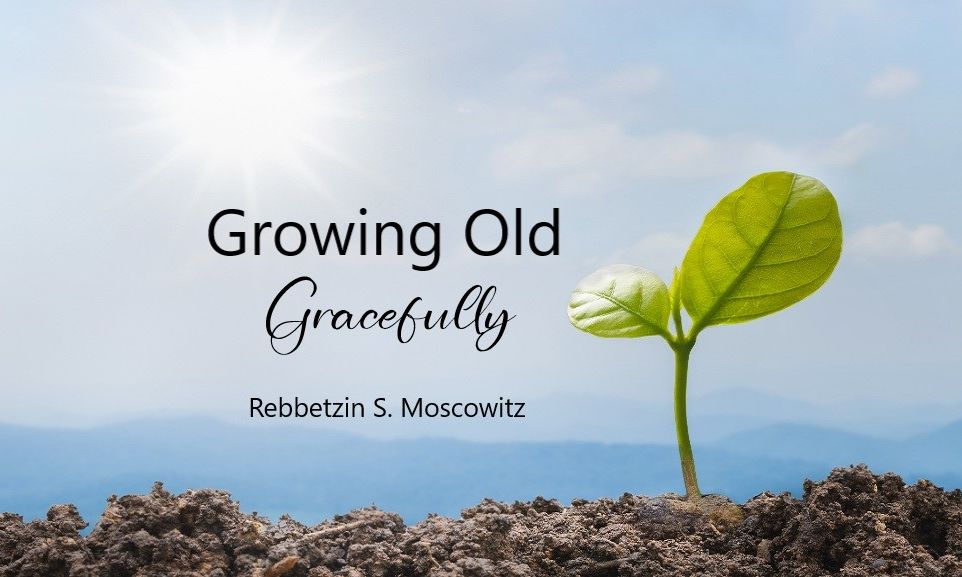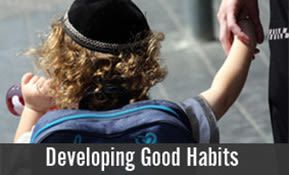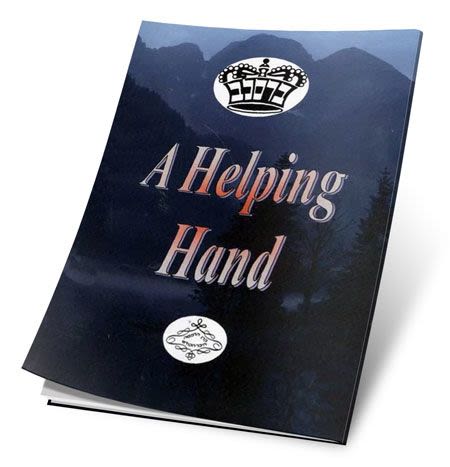
Growing Old Gracefully
We're older now and have adult children. Perhaps they look at us as as old-fashioned, not with-it, and unable to keep up with the pace of life and the latest technology. How do we interpret this? What is our role now?

Time is forever moving on (don’t I feel it!) and I’m on the move again, this time to London to see my three children living there; they are my oldest and my youngest who are both girls, and a son who is tucked in between the two of them. As you know this is not the first time I’m visiting London since I’ve come to live in Ashdod so the preparations for such a trip are quite routine by now. I booked a ticket with the travel agent and took my suitcase out in preparation for packing the night before I traveled. I made sure that food was cooked and left in the freezer for the Rav’s meals whilst I was away and that his laundry was left in neat piles in the cupboard.
I was actually up to date with all my preparations (unlike some other times I can think of) and congratulating myself that this time I would leave my home clean and tidy; not like last time I went to London when a stomach virus just before I traveled left me so weak that I was unable to clean up before I left. (It bothers me tremendously that the Rav should be left with an untidy home).
But we know that “Der mensch tracht and der Eibishter lacht” (man plans and Hashem disbands) (that wise old saying of my mother’s a”h), and I was once again clearly shown Who runs the world and Whose calculations take precedence over mine.
Hashem’s plan for me was that, once again, I would leave an untidy home – so what did Hashem do this time? Nothing as drastic as the stomach virus I had last time, but nevertheless just as effective. The evening before I left, I was kept so busy answering the phone and the door (much more than usual) that by the time it slowed down (and I could even think of myself) it was past midnight. My only thought at that hour was “thank goodness I packed my suitcase earlier on in the evening”, and the realization that if I wanted some sleep that night (I had to get up at 4.30am) I would once again have to leave the mess for the cleaning lady to clear up.
I was so fearful of over-sleeping that I had set two alarm clocks to wake me; and even so I woke up every hour. When I did get up, even before the alarm clocks rang, I was so tired that I felt as if I hadn’t slept a wink the entire night, but two cups of tea (the caffeine in them) restored me wonderfully; after that I felt as fresh as a daisy.
I left home at 5.30am and when I arrived at Ben Gurion airport I was once again hit with this feeling that I had left my safe, secure haven in the frum section of (not-any-more-so-sleepy) Ashdod and entered the “big, bad world out there”. The contrast between the two is so great that it is frightening; the streets might look very similar, but the way people are dressed and the language you hear makes you think you’re in another world.
Baruch Hashem though, there were other frum yidden traveling to all parts of the globe and it made me feel better. How normal they looked to me, dressed in the frum “uniform”, as opposed to some others who wore the weirdest types of dress.
There is a great lesson to be learned from this – that “normal” means something different to each person. In reality, “normal” means “whatever you have grown up with” or “whatever you are used to”; what is “normal” to one can mean “abnormal” or “weird” to another.
I headed for the Chabad booth, a little sheltered oasis of frumkeit set in the midst of a modern contemporary airport (close your eyes and you could be anywhere else in the world), and as I sat there, I watched the goings-on around me. And what I saw was the difference between “us” and “them” – the frum and the not (yet) frum: the gentleness and refinement of my fellow frum travelers, talking gently and with care, and trying to help out and soothe each other. This contrasted with the sharpness, the loudness, and the uncaring rush of other people; even when an employee of the airport smiled at me it was a meaningless smile with empty eyes.
We as frum people feel that we are brothers responsible for each other, not heedlessly leaving those around us to fend for themselves. I have seen frum people at the airport who, if they know that their luggage is underweight, will wait until they see someone whose luggage is obviously overweight and offer to weigh together with them so that they can “take” some of the overweight. And many is the time I have seen someone go over and take a crying baby from a harried mother and soothe it so that the mother could carry on with other things.
The journey was uneventful, but when I got to London a feeling of alienation hit me; I felt as if I had landed on a strange planet called “the outside world”. And even though I lived in London amongst the goyim for almost three quarters of my life, I was so overwhelmed that I felt like turning round and taking the next flight home (apparently a very common feeling for frum people who are used to living in the secluded “ghettos” of Bene Brak or Yerushalayim). It seems that I really got used to the secure, sheltered, gentle way of life in my section of Ashdod. The sheer number of goyim, and the feeling of isolation amongst them was overwhelming. Even in Eretz Yisroel, where you have almost nothing in common with the non-frum Israelis, at least you know that they are yidden.
The coarse, hard faces and the vacant eyes together with all the different accents that I heard around me threw me straight back to the years I spent in England. It threw me back to the constant alertness and tension I lived with (which I never even realized until I came to live in Eretz Yisroel and relaxed) as to whether the next non-Jew was going to decide to amuse themselves by “having a go” at the nearest yid. It threw me back to where one only relaxed behind one’s own front door after it had been securely locked – and we’re talking about very securely locked with different types of locks and bolts to keep out the “foreign elements” (burglars) who made regular visits to Jewish homes.
After a journey halfway across London I arrived at my brother’s house where I was staying and finally relaxed with my family who had come to greet me. During my ten-day visit I had a lovely time, relaxing and visiting family and friends, and in general just enjoying being with the family.
On Motzei Shabbos the sister-in-law I was staying with made a beautiful melave d’malka for my children and those of my two brother’s families who live in London, a real family get-together. It was heart-warming to see the “branches” and “fruits” of the “tree” that our parents planted so many years ago.
After the children and grandchildren had left (well past midnight and only because the grandchildren had to be put to bed) I, my two brothers and their wives were the only ones left. It was so comfortable and relaxing sitting together, all of us grandparents with older grandchildren, enjoying the peace and quiet.
And as we sat there with teas and coffees and delicious pastries (to help our expanding waistlines expand better) the talk turned to our “stage” in life – how we felt the need to slow down a little from the hectic pace of life in the “fast lane”; not to dash around at such a frenetic pace, but instead to enjoy some moments of quiet and relaxation, to savor the moment instead of forever looking at our watches and wondering anxiously how late we were for the next appointment, and always running, running, running.
And we all smiled at each other in tranquility and camaraderie – we’ve fulfilled our mission in life – those wonderful children and adorable grandchildren are testimony to the fact. We’ve sweated and toiled through endless crises and sleepless nights – and now it’s time to sit back and relax a little and enjoy the fruits of our labor; we can afford to stop now and shep the nachas we’ve worked so hard for……….
Until one of my sisters-in-law said that that was not the way she felt at all. Because she was not as quick and sharp as she had always been she felt that she was worthless now. She felt that she had been overtaken by her children and slightly pushed aside and that her children looked upon her as old-fashioned, not with-it, and not even able to keep up with the pace of life and the latest technology.
And we were all quiet as we digested this – because in truth that is the downside of our stage of life – the feeling of being a has-been, and although (hopefully) our children love us as their parents, do they respect our seeming slowness in learning “new-fangled” devices which they absorb at the snap of a finger, or our inability to multi-task as much as we used to?
And we slowly began to discuss and explore this aspect of our lives – forgetfulness, loss of strength and flexibility, and erosion of sharpness. We first started by bringing forth all the time-honored clichés- that we have so much on our heads that it takes us longer to dredge up the information from our brains, if we remember it at all. Then there is so much to do nowadays; we are the sandwich generation between parents above us (in many cases) and children and (hopefully) even grandchildren below us to care for.
But in the end, we admitted to each other that although it was partly true, those were really all excuses; truthfully it actually is much harder and more pressured to work at such a fast pace and burn the candle at both ends.
Silence descended on us as we digested this and my sister-in-law said slowly “So does that mean that we’re really over the hill, that we are has-beens, pushed aside by the younger, stronger generation. It’s a very painful thought that I – who expended so much energy on bringing up my family – am pushed aside because I am not able to keep up anymore?
The answer that came to me after considering the matter from all angles is that in reality all is perfectly in place in Hashem’s world.
The reason why we feel this way is because we are trying, in a sense, to measure up to our CHILDREN’S evaluation of what is important (which of course is not right)!
Rather, we must look at it from a completely different angle. We must (once again) look at what is the tachlit (purpose) of our lives as yiddishe mothers – that we were born to build and guide Klal Yisroel and without whom Hashem’s world would not be able to function.
With the family grown up and having left the nest, we have completed the first part of our tafkid – that of building, of bringing children into the world, of nurturing and educating them and planting their footsteps firmly on the right path.
With stage one completed it is now time to concentrate on stage two of our task – to be the torchbearers and guards who light the way for our family and ensure that they remain on the right track. This is fulfilled – paradoxically – by REMAINING AS WE ALWAYS HAVE BEEN – WITH NO APOLOGIES! – doing what our mothers and grandmothers before us have always done – keeping watch over our family’s values so that they remain true to Yiddishkeit.
When our children come into our calm, relaxed homes where we are almost in a time-warp, we portray, without their even realizing it, what the true values of life are. We are the role models for our family so that the standards we have worked so hard to instill in them remain fresh and alive and do not fade and become forgotten in the frantic pace of their lives. Because who, if not us, the older generation, after a lifetime of experiences truly understands what is important in life?
It’s very easy to swim and rush with the tide, which makes it feel that it is important to constantly be up to date. That is the goyishe ideal – to be at the cutting-edge of whichever field you are in (whether it’s technology or educating your children, it makes no difference). Being up to date denotes cleverness and with-it-ness; anyone who has “fallen behind” is seen to be stupid and a has-been and not even worth listening to.
But that is not the yiddishe ideal; the yiddishe ideal is to bring up our children so that they go in precisely the opposite direction – the ways of our forefathers. Certainly, use all the technological and other modern inventions that you can to make life as a frum yid easier. I couldn’t do without my microwave oven or time-switch for Shabbat, and the ID on my phone is something I would find very hard to live without nowadays; it’s also much easier to take pictures with the latest digital camera, and the fact that I can preset my oven to bake later and that it rings to remind me when my cakes are done is a lifesaver. As for disposable tablecloths and tableware when I have a lot of visitors – I never cease to bless the person who invented them.
But what I’m still waiting for is a computerized fridge (apparently it was once displayed at an Ideal Home Exhibition in England) which, after it has been programmed, will inform me when the stock inside has slipped below the desired level. And taking that a step further, does it just have to be the fridge; what about our pantry cupboards? (The truth is that I’m absolutely fascinated by all that “gadgetry”).
And of course, my real dream is a robot to do the housework, particularly to wash the dishes. Do you realize how many dishes I have washed in my forty-one years of being married, sometimes as many as five times a day? The scientists have been able to put a man on the moon; why have they not yet managed to invent a ‘man’ for this planet (it’s a mis’man‘agement of priorities).
That’s all wonderful when you have your priorities right – but, and it’s a big but – the aim is
TO MAKE ALL THAT WONDERFUL TECHNOLOGY
SUBSERVIENT TO OUR NEEDS AND WAY OF LIFE –
AND NOT TO BE SUBSERVIENT TO IT
The aim is not to think that being up to date is the measure of our value as a person.
And if you feel worthless, just look at the children who have already left the nest and have started making their own way in life. Who if not YOU brought them to this stage and showed them the right derech (path). IT IS YOU –נשים צדקניות the world over – who have walked in Hashem’s ways and fulfilled what He has required of you.
Talking about keeping yesterday’s values alive for our children reminds me of the time one of my daughters was upset with something I had said to her. In response she threw at me “Oh, you’re so old-fashioned, mummy, you don’t understand”. I replied, “You couldn’t have paid me a better compliment, because that is my greatest aim in life – to be exactly like my mother”. My daughter had obviously not meant it as a compliment, and she never repeated it again. What a shame!
Running forward is not important – looking back is. We have never been a people to embrace new ideologies and different ways of life without weighing if it would harm the overall structure and continuation of Klal Yisroel in its pure form.
Let’s not be taken in by the goyishe yardstick of success to which even our own people have fallen prey, where only the young, strong, and quick are valued. The mature and experienced generations are as necessary to Klal Yisroel to guide and lead them in the right direction as are the younger generations who are building. Klal Yisroel could not survive in its pure state without either of them, so let’s gracefully accept our place in the hierarchy of our people.
Now is the time to marvel and kvell at the brilliance of our children who can understand and keep up with the intricacies of the latest technological advances and to shake our heads and say “It wasn’t like that in our time”; (I really do sound like my mother a”h when I say that). At the same time let’s be secure in the knowledge that we, by remaining exactly as we are, are shaping and guiding Klal Yisroel.
So, sit back and enjoy – enjoy that cup of coffee with that piece of (forbidden) chocolate whilst chatting leisurely to your friend on the phone about the latest wonderful gadget that your children have just demonstrated (but which still remains a total mystery to you) and be proud of yourself –
YOUR CHILDREN ARE WHAT YOU MADE OF THEM!
And if you really are energetic, although you’ve been thrown out of the “workforce”, what about all those voluntary agencies that are always in need of manpower? They are waiting for you with open arms!







Tell us what you think!
Thank you for your comment!
It will be published after approval by the Editor.